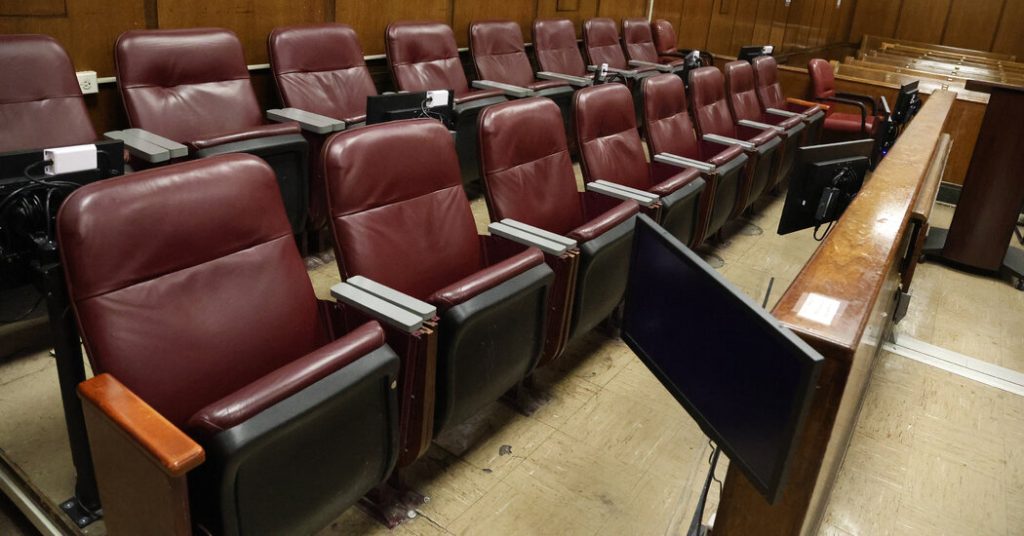Manhattan residents reporting for jury duty will be vetted as potential jurors for the trial of former President Donald J. Trump. Lawyers for Trump and prosecutors will narrow down the pool of hundreds of prospective jurors to 12 jurors and alternates through a process of questioning and vetting. The jurors will be expected to answer questions honestly in front of the former president, who is expected to attend much of the trial. The identities of the potential jurors are known to the parties involved in the trial due to New York State regulations, but the public may never know their names as requested by the prosecutors.
During the questioning process, potential jurors will first be asked if they can be fair and impartial in light of the allegations against Trump. They will also be asked about any scheduling conflicts that could interfere with their attendance at the trial, which is expected to last more than six weeks. The jurors who remain in the pool will then be asked a series of standardized questions about their backgrounds, including their occupations, education, and news consumption habits. Specific questions will also be asked about their interactions with Trump and his associates, but not about their voting history or political affiliations.
Both Trump’s legal team and the prosecutors can challenge the inclusion of specific potential jurors by providing reasons they believe the juror may not be fair and impartial. The final decision rests with the judge, who will also remove any jurors who are challenged by either side without explanation. Once the pool has been narrowed down, the jury will be seated with the remaining members. Trump is likely to be highly involved in the jury selection process, based on his behavior in previous trials where he closely observed and interacted with potential jurors. However, he is subject to a gag order preventing him from making public statements about the jurors.
The jurors themselves will come from a diverse group of Manhattan residents, with little information available to the parties initially. The questioning process will delve into their backgrounds and beliefs, including their interactions with Trump and their perceptions of his treatment in the case. The jurors will all face the same set of questions, aimed at determining their ability to be fair and impartial throughout the trial. Those with conflicts of interest or biases that could affect their judgment will likely be removed from the jury pool to ensure a fair trial for both Trump and the prosecution.
The trial is expected to be a high-profile and contentious affair, with Trump likely to be closely involved in the proceedings. The potential jurors will play a crucial role in determining the outcome of the trial and will be under scrutiny during the questioning process. The judge, Justice Juan M. Merchan, will supervise the jury selection process, ensuring that it is conducted fairly and impartially. The jurors will be asked a range of questions about their backgrounds and opinions to assess their suitability for serving on the jury in what is sure to be a closely watched trial of a former U.S. president.


